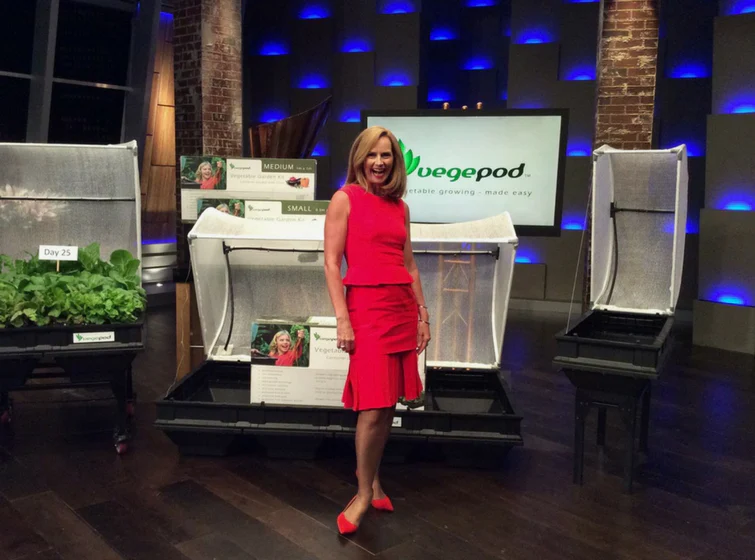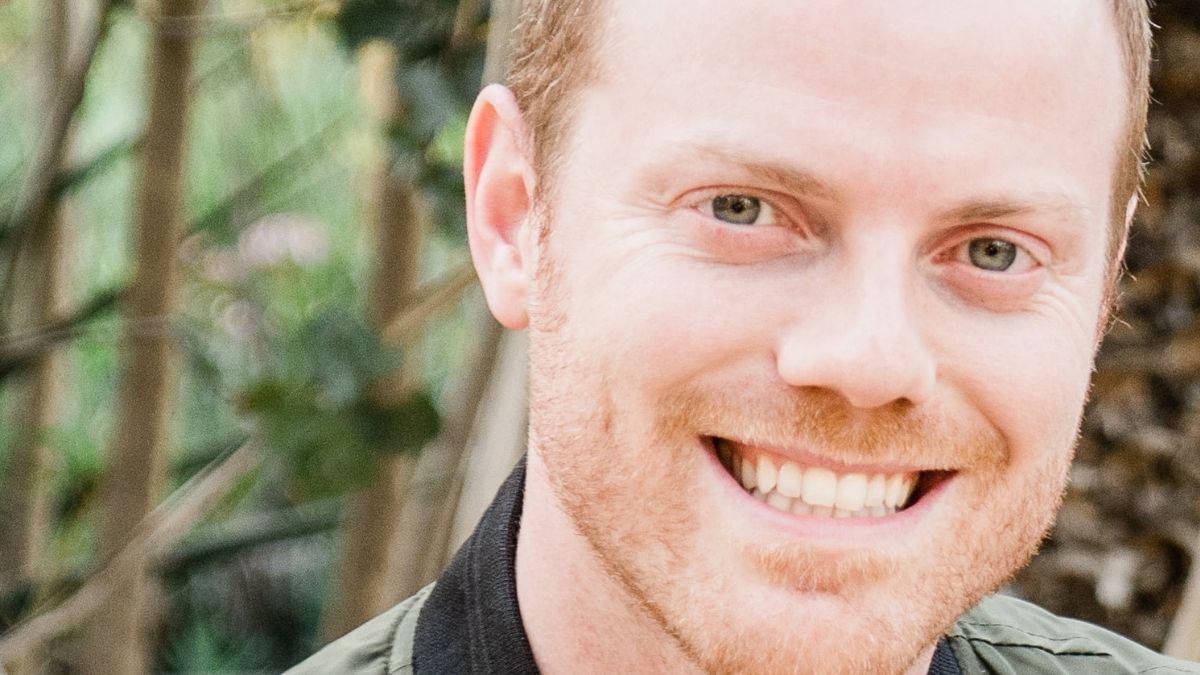A Founder's Guide to Letting Go and Scaling Up
I remember when the founders of Vegepod walked into Season Two of Shark Tank. They had a brilliant product—a self-contained, self-watering, raised garden bed—and a passion you could feel from across the room. They had solved a real problem for people who wanted to grow their own food but lacked the space or the "green thumb."
Fast forward to today, and their journey is nothing short of extraordinary. They’ve grown from a hopeful startup into a global powerhouse, operating in 19 countries with a team of 40 people. This is the dream. This is the success every founder who walked through those doors was chasing.
But with great success comes a new, more complex set of challenges. And this was at the heart of a recent, wonderfully candid conversation I had on my podcast with Simon, Vegepod's head of sales and marketing.
He asked a question that I know keeps thousands of successful founders up at night. It wasn't about finding product-market fit or making his first sale. It was about how to manage success. His core challenge? The perpetual, dizzying change of digital marketing channels. He asked, "How do I stay on top of the ever-changing algorithms of Google and Facebook?"
Implicit in his question was a deeper, more fundamental one that every single scaling founder must confront: "Do I need to be an expert in everything to lead my business?"
The answer is a clear, resounding, and liberating no.
In fact, not only do you not need to be the expert, but the moment you stop trying to be the expert in everything is the moment your business is truly unlocked to scale. Your role must evolve.
Our conversation was a fantastic exploration of this evolution, filled with laughs, tangible leads, and deep learnings. It’s a must-listen for anyone who feels like they’re running on a treadmill just to keep up.
Today, I want to expand on the key themes from our chat and give you a roadmap for making this critical transition from being the "expert doer" to the "expert leader."
Escaping the Digital Marketing Treadmill
Simon's challenge is one I see every day. You finally get a handle on your Facebook Ads, and then Apple releases an iOS update that changes everything. You master Google SEO, and then they release a major algorithm update that rewrites the rules. It feels like a full-time job just to stay current, let alone get ahead.
Here’s the truth: It is a full-time job. But it doesn't have to be your full-time job.
When you're starting out, you do it all. You learn the basics of Google Ads, you manage the social media yourself. But as you scale, your time becomes your company's most valuable and scarcest resource. Every hour you spend trying to become a C-grade digital marketer is an hour you don't spend on the things that only you, the founder, can do:
- Setting the vision and strategy for the entire company.
- Building and nurturing your company culture.
- Forging high-level strategic partnerships.
- Being the public face and chief evangelist for your brand.
So, how do you stay on top of it all? You don't. You hire or outsource to people whose entire job is to be obsessed with it. Your role shifts from being the player on the field to being the coach and strategist on the sidelines.
Your New Job Description:
- Define the "What" and "Why," Not the "How": You need to be the world's leading expert on your customer and your brand. Your job is to define what message you want to communicate and why it matters to your audience. You then hand that strategic brief to your marketing experts and empower them to figure out the how—the best channels, tactics, and technical execution to achieve that goal.
- Learn to Ask the Right Questions: You don't need to know how the algorithm works. You need to know how to interrogate your experts. Ask questions like: "What is our customer acquisition cost (CAC) on this channel?" "What is the lifetime value (LTV) of a customer from this channel?" "What is our return on ad spend (ROAS)?" "What are you testing this month to improve these numbers?"
- Demand Clear Reporting on Metrics That Matter: Your experts should report to you in the language of business outcomes, not technical jargon. Don't accept a report on "impressions" and "click-through rates." Demand a report on leads, sales, and profit.
Product and Channel Strategy - Don't Chase Shiny Objects
With a new product on the way, Vegepod is facing another classic scaling challenge: how to choose the right channels and strategy for a new launch. When you have a bit of success, the temptation is to be everywhere, on every new platform. This is a trap. It leads to spreading your resources too thin and doing a mediocre job on ten channels instead of an excellent job on two.
My advice is simple: Go deep before you go wide.
- Master Your Core Channels: What are the one or two channels that have driven the majority of your growth so far? For Vegepod, it’s been channels that allow for visual storytelling and community building. Before you chase the hot new platform, have you completely maximised your potential on your proven winners?
- Launch to Your Warmest Audience: Your most valuable asset for a new product launch is your existing customer base. They already know, like, and trust you. Your email list and your social media followers should be the absolute first place you introduce your new product. This creates an initial sales velocity and generates valuable feedback from your most loyal fans.
- The "Product-Channel Fit" Test: Every channel has a native language. LinkedIn is for professional content. TikTok is for short-form, entertaining video. A B2B software product will likely fail on TikTok, just as a vibrant consumer product might struggle with traditional B2B outreach. Before jumping on a new channel, ask: "Is this where our ideal customer is, and is this the right environment to tell our product's story?"
The Customer Service Conundrum - Is Personalised Service Maintainable at Scale?
I loved that Simon challenged me on this. It's a high-level strategic question that shows he's thinking like a leader. As you grow from serving hundreds of customers to hundreds of thousands across 19 countries, you simply cannot maintain the same level of one-to-one, founder-led customer service. It’s not financially or logistically possible.
So, do you just have to accept that your service will get worse? Absolutely not.
You must differentiate between personal interaction and a personalised experience. The goal is to scale the feeling of being cared for, even if you can't scale the one-to-one interaction.
How to Scale World-Class Customer Service:
- Invest in One-to-Many Care: Your customers' first port of call should not be a human. It should be a world-class, self-service knowledge base. Create an extensive, searchable FAQ section. Film high-quality how-to videos for every common question. A brilliant self-service hub can solve 80% of customer issues instantly, at any time of day, at zero marginal cost. This is the ultimate form of leverage.
- Empower Your Community: For a product like Vegepod, your community of passionate users is your greatest untapped asset. Create and nurture a thriving Facebook group or online forum where users can share tips, answer each other's questions, and celebrate their successes. A customer getting an answer from a fellow enthusiast is often more powerful and authentic than getting one from the company itself.
- Use Technology for Smart Personalisation: Leverage your CRM data to create a personalised experience at scale. Send onboarding emails with tips specific to the customer's climate. Acknowledge their purchase history. Use technology to show them you know who they are, without needing a human to type every email.
- Elevate Your Human Support: By automating and delegating the simple queries, you free up your human customer service team to be true heroes. They can now dedicate their time to the most complex, emotional, or high-value customer issues, where a human touch can make all the difference and turn a potential disaster into a story of legendary service.
The Expert of Your Own Evolution
The journey of Vegepod from the Shark Tank floor to a global brand is a testament to the founders' passion and hard work. But their ability to navigate the next stage of growth will depend entirely on their ability to evolve their own roles.
The founder's journey is a constant process of making yourself redundant. You build a system for sales so you're not the only salesperson. You build a system for marketing so you're not the only marketer. You build a system for customer service so you're not the only support agent.
You don't need to be the expert on Facebook Ads. You need to be the undisputed expert on your company's vision, your culture, your customer, and your strategy. Your job is to find the experts, empower them with your vision, and hold them accountable for results. This is how you build a business that is bigger than you. This is how you build an asset that can thrive for decades to come.
Our full conversation on the podcast is a deep, honest dive into these very challenges. You can hear the gears turning as Simon and I workshop these ideas in real-time. It’s a candid look behind the curtain of a successful, scaling business.






